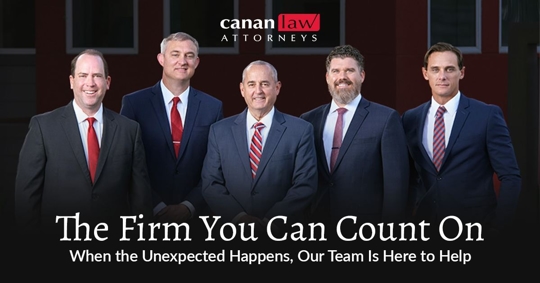Domville v. State of Florida – Florida’s Fourth District Court of Appeals
This story brought to you by Canan Law, the most respected team of attorneys in St. Augustine.
According to a recent national survey, Judges and Courts are increasingly using social media such as Facebook and Twitter.
Once a person becomes a judge, he or she does not drop out of society. Judges have spouses, families and long lost friends from high school. Judges also have Facebook.
Recently, a criminal defendant claimed that the existence of a social media relationship between the judge and the prosecutor assigned to his case caused him to believe that the judge would not “be fair and impartial.” The defendant supported his Motion to Disqualify the judge with an Affidavit stating the judge and prosecutor were Facebook “friends.”
The defendant explained that he was a Facebook user and that his “friends” consisted of only his closest friends; persons he could not perceive with anything but favor, loyalty and partiality. But, in reality, Facebook friends and actual friends can be different as different as pleather and leather.
Not surprisingly, the trial judge disagreed and denied the defendant’s motion. The defendant appealed the ruling to Florida’s Fourth District Court where he found a sympathetic ear. The Appellate Court agreed with the defendant in this case that the trial judge’s status as Facebook friend of the prosecutor constituted legally sufficient ground for disqualification.
The Appellate Court recognized that the ability to participate in social media is of great importance to many people. However, a judge’s activity on a social networking site may undermine confidence in the judge’s neutrality. The Appellate Court also acknowledged the existence of a judge’s Facebook page has the potential to exert pressure on lawyers to take direct or indirect action to establish favor with the judge.
Central to the public’s confidence in the court system is the belief that fair decisions are rendered by an impartial tribunal. Maintenance of the appearance of impartiality requires the avoidance of situations that convey or permits others to convey the impression that certain individuals are in a special position to influence the judge.
As a judge, a person must expect to be the subject of constant public scrutiny. A person who accepts responsibility of being a judge must also accept limitations on personal freedom and therefore, limitations on social networking.
Judicial friend-ing on Facebook isn’t the only way social media is making its way into the courtroom. Social networking posts are increasingly being used as evidence in trials, and juror use of social media continues to create havoc for judges, prosecutors, and defendants alike as they struggle to understand and sort out the repercussions of jurors who tweet, Google, and Facebook from the jury box.
In the meantime, one thing is clear: despite the issues surrounding technology and social media, all defendants in criminal cases are entitled to a fair and impartial trial. By hiring an experienced criminal defense attorney of Canan Law, you can be confident that you are represented by a competent, knowledgeable lawyer who will work aggressively to protect your rights in the courtroom.
Call us or stop by our offices at 43 Cincinnati Avenue in downtown St. Augustine if you have any questions about a pending criminal matter.
Canan Law, the most respected team of attorneys in St. Augustine, keeps you informed with blog posts discussing legal terms and Florida court cases that matter to you. Ask your legal question today with our website’s live chat feature!



